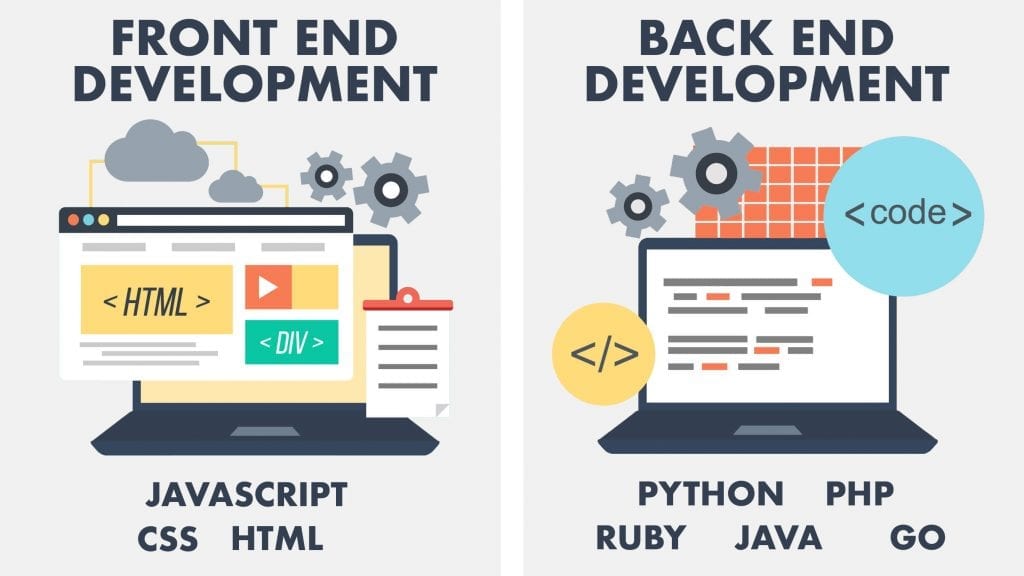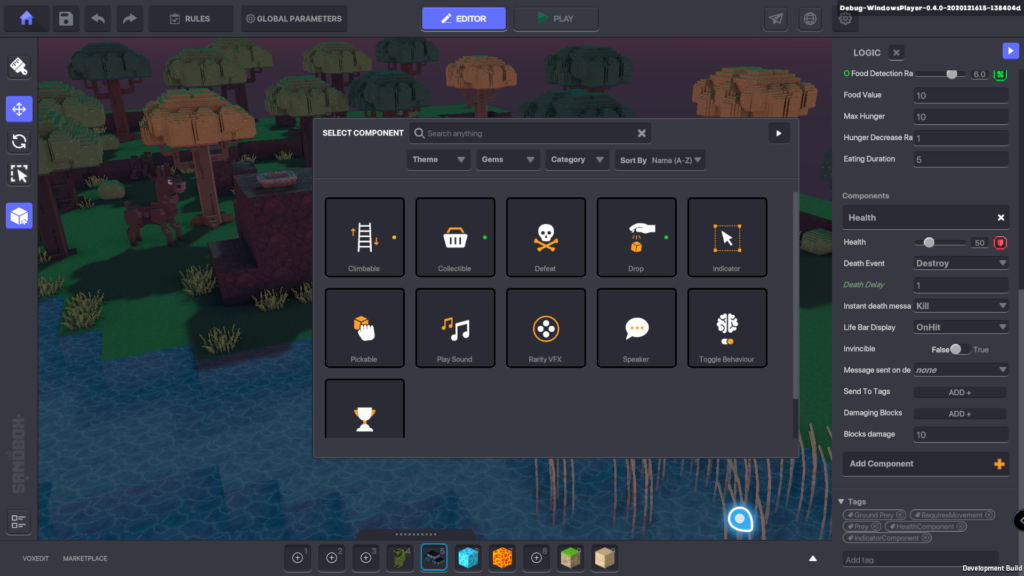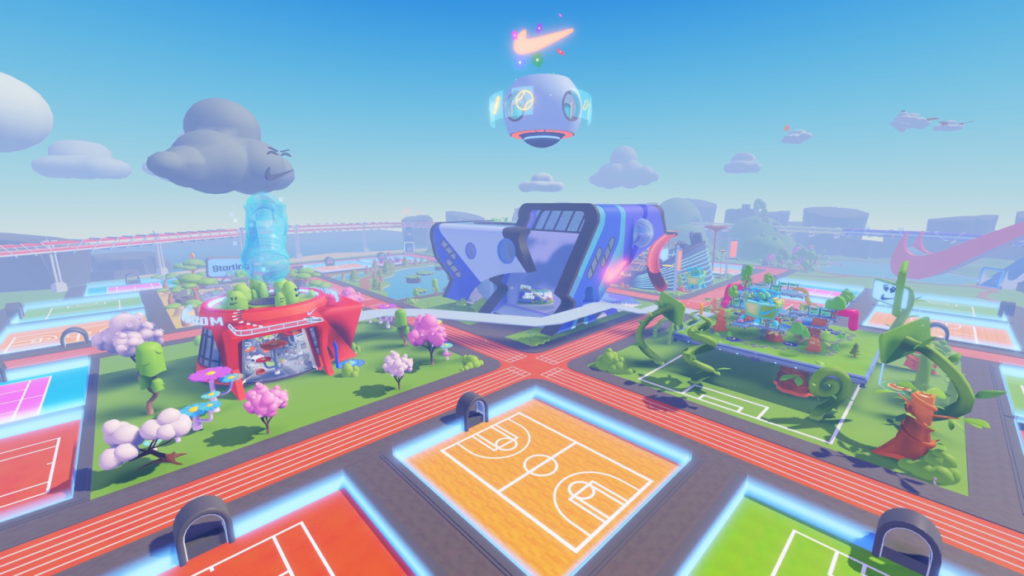Earlier this month, our CEO & Founder, Jeanne Lim, appeared at the Afro Future Summit to discuss the coming metaverse future and how young professionals can prepare themselves for it. In fact, this isn’t the first time that we’ve been invited to speak on this topic – afterall, the “metaverse” is the most trending technology in 2022.
In case you missed that talk, we’ll be releasing a 3-part series, where we take an in-depth look at both existing and emerging professions within the metaverse industry today, and how they might evolve and look like in the future.
In Part 1 of this series, we will start by taking a look at the professionals that are largely responsible for making the metaverse possible today.
Introduction
Since the “metaverse” is still a loosely defined term, throughout this series we will be adopting a broad definition that will include any virtual world or digital ecosystem created through the use of one or more technologies.
Today, there are hundreds of different metaverse projects in development, each attempting to create its own unique alternate world. It should come as no surprise then, that one of the most highly sought after and in-demand technical jobs in the market today are metaverse developers.
Did you know that the term “Metaverse” was first coined in Neal Stephenson’s science fiction novel “Snow Crash” as early as 1992?
Backend Developers
Developers play such a large part in building the metaverse, it’s easier to start by breaking it down and looking at them as two separate roles in order to first get an overview.
As the name suggests, Backend Developers mainly focus on working on the parts of the metaverse that the users generally don’t see. These parts actually make up some of the most important foundations as they are what makes the metaverse interactive. If a new interaction is required for your metaverse, the Backend Developer will be responsible for developing that function.
Some typical and common responsibilities for Backend Developers include:
- Building code
- Database and other server side management
- Troubleshooting and debugging applications (or smart contracts in Web3 metaverse projects)
If you are looking to build a career as a Backend Developer, some skills that are both essential and desirable include:
- A strong proficiency in at least one (preferably two) programming languages like Python, Java, Ruby, JavaScript, Node.js, PHP, and C++ is a necessity.
- Each programming language has its own pros and cons for different uses (for example PHP is primarily a server-side scripting language, whereas Java is a platform and programming language).
- Python is highly recommended as a general purpose programming language that can also be used for general software development.
- If you are looking at Web3 or blockchain metaverse projects, some experience with Solidity (for smart contract development) will be required.
- Knowledge and experience working with backend frameworks like Express, Django and Rails is also required.

Frontend Developers
Working alongside Backend Developers, Frontend Developers focus on the parts of the metaverse that the users will see, such as the user interfaces and the user experiences.
Some typical and common responsibilities for Frontend Developers include:
- Designing and building user interfaces, such as websites or mobile applications
- Building wireframes, layouts, navigation, and managing content organization
- Developing media assets such graphics, animations, and videos
Unlike Backend Developers, if you are looking at a career as a Frontend Developer the required skills can vary depending on which technology platforms are being used in your metaverse project:
- Currently many metaverse projects exist online as Web3 projects – strong proficiency in web development programming languages like HTML, CSS, JavaScript is almost certainly a necessity
- Some metaverse projects focus on building virtual game worlds that can run on desktop or AR/VR/XR devices – some experience with game development engines, such as Unity or Unreal, will give you a strong advantage
- Experience with graphics and media editing software to create 2D/3D models, images, animations, such as Adobe Creative Cloud, Blender, and AutoDesk is generally not a requirement, although these skills are highly desired and will give you an advantage.
- Frontend Developers also have their own frameworks and libraries they should be familiar with, such as AngularJS and React.js
Metaverse Architects
The metaverse industry is quickly evolving, and new professional opportunities are also arising. As some metaverse projects like Sandbox and Decentraland roll out complete and entirely new virtual worlds as “open-world” platforms, they also enable a whole new possibility of professions.
One such job is the Metaverse Architect – a newly emerging role that combines the architect discipline with specialised frontend developer skills to improve and create new experiences within the metaverse.
Although the typical responsibilities for Metaverse Architects can vary greatly at this time, they generally involve:
- Designing and creating virtual worlds within metaverse platforms
- Expanding interoperability with other virtual ecosystems and platforms
- Gamifying and building experiences for users
If you are aiming to become a Metaverse Architect, you should know it is a role that can require diverse professional knowledge from multiple fields:
- Experience as a Frontend Developer will most likely be required
- Experience in game design and graphic design (in particular 3D modelling) will give you a strong advantage
- Experience building and architecting with “open-world” platforms, such as Sandbox, Decentraland, Minecraft, and Roblox, will also give you a strong advantage

Community Managers
Not all professional opportunities created by the metaverse are technical jobs. As the goal of every metaverse is to attract a strong community of users in order to become a sustainable ecosystem, another job that has seen a large influx in demand are Community Managers.
Community Managers generally focus on building and developing the user community and ecosystem around the metaverse. Specific responsibilities can vary depending on the nature of the given metaverse, but typically they will include:
- Creating, building and managing virtual communities
- Designing and implementing community/user growth and engagement strategies
- Acting as a bridge between developers and the community, as well as facilitating discussions
If you are interested in a career as a Community Manager some skills and experience that can improve your chances of getting your foot in the door:
- Experience working as an admin on social media and community building platforms, such as WordPress, Discord, Medium, Twitter, and Facebook
- Experience creating communications and managing media assets
- A proven track record demonstrating a keen marketing sense will be a strong advantage

So far we’ve taken a look at some of the potential career paths for working in the metaverse today. The metaverse is still in the earliest stages of adoption, but we are quickly building towards the future and as it continues to evolve, we will undoubtedly see an even bigger explosion of opportunities just around the corner.
In Part 2, we will take a closer look at some traditional industries that are starting to be disrupted by the metaverse paradigm, as new business models are created and digital versions of old business models offer unique benefits for early-adopters.
Website: https://beingai.com/
Twitter: https://twitter.com/beingaico
Instagram: https://www.instagram.com/beingaico/
LinkedIn: https://www.linkedin.com/company/beingai/
Facebook: https://www.facebook.com/beingaico/
Discord: https://bit.ly/beingai-discord-community
Blog: https://beingai.com/blog/
Medium: https://beingai.medium.com/
Email: hello@beingai.com

